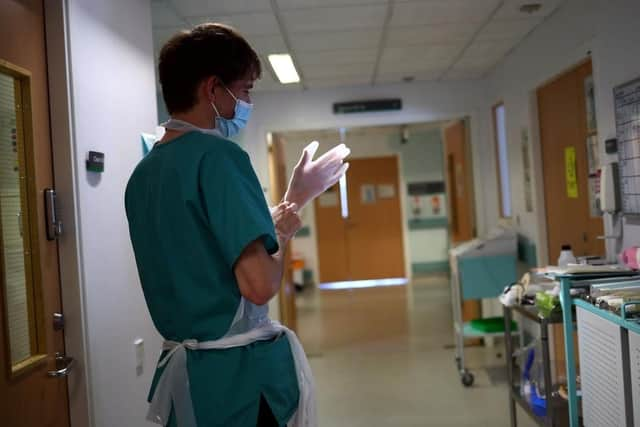Dr Lailah Peel: My NHS colleagues are dangerously close to breaking point
Make no mistake, junior doctors in Scotland are angry. Every day I go into work I see a broken system, and colleagues dangerously close to breaking point. Morale is rock bottom, we are exhausted, depleted and struggling to see the light at the end of the tunnel. A tunnel we feel like we’ve been stuck in for a number of years now.
The workforce is understandably buckling under the current workload pressures and I’m increasingly having conversations with colleagues about their concerns over unsafe working environments. This doesn’t just impact doctors – it’s impacting nurses, physiotherapists, porters, cleaners – everyone across our NHS. Crucially it also impacts patients. Your loved ones.
Advertisement
Hide AdAdvertisement
Hide Ad

Junior doctors are running themselves into the ground, so much so that often I have to remind my colleagues to take their breaks, go somewhere quiet to simply pause, decompress and relax. Unfortunately, the majority of our hospitals don’t have adequate facilities for junior doctors to do this – so more often than not, when they do finally take a break, they’ll find themselves somewhere that’s noisy with people milling around who will likely ask them to do something. And they won’t always feel able to say no. They’ll get up and deal with the problem. Patients come first, always, but without proper breaks mistakes become more likely, safety becomes compromised – for everyone.
I cannot tell you strongly enough how bad the effects of fatigue can be for both staff and patients. Breaks have been recognised as a critical issue of safety by all parties involved in the NHS – but the issue of junior doctors unable to take their breaks remains, with no proposed approach or plan to lead change that is desperately required to address this.
Almost a year ago, just a week after BMA Scotland published its own junior doctor wellbeing report, the Scottish Government published the results and recommendations of its Expert Working Group on 48-hour working – a group that came together to explore the pros and cons of a maximum 48-hour working week for junior doctors.
Fourteen recommendations were made in a bid to improve, and make safer, the working lives of junior doctors. Forty-eight weeks since it was published, and just one recommendation has been implemented: limiting the number of consecutive long shifts – over 10 hours – to a maximum of four in any seven days.
This was a key priority for junior doctors – but even now, I am still hearing from colleagues who are working rotas which contain five consecutive long shifts and that’s simply not good enough almost a year down the line from the publication of a report that was already delayed for nearly two years due to the pandemic.
There is no resilience left in our system. We are on the brink – and we know this winter is going to be the worst ever, worse even than last year. We want to do the best by our patients but in this current climate I am deeply concerned for everyone.
Dr Lailah Peel, junior doctor and deputy chair of BMA Scotland
Comments
Want to join the conversation? Please or to comment on this article.
